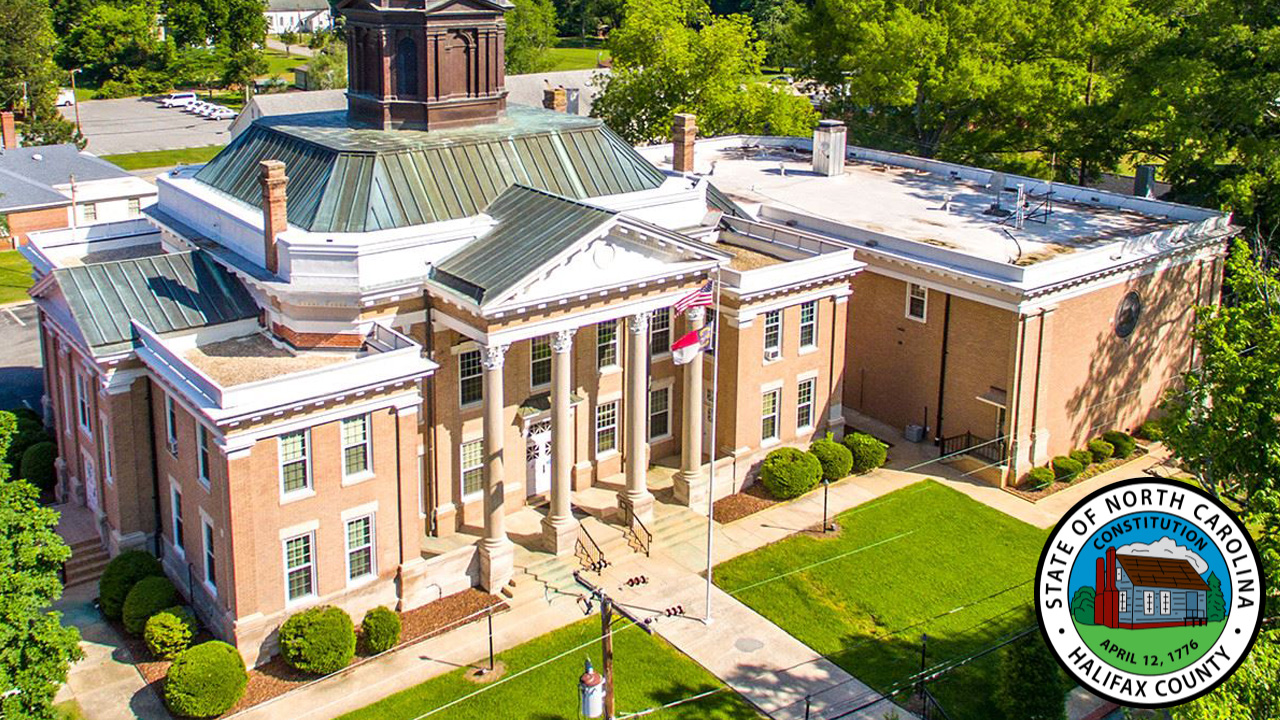Before a deadlock forced the death of a resolution in support of a casino for the Carolina Crossroads Entertainment District during a special meeting of the Halifax County Board of Commissioners Monday night, Economic Development Director Cathy Scott presented information showing the potential impacts such a facility could have on the area.
The decision on the resolution, which the city of Roanoke Rapids had thrown its support to, came down to commissioners Linda Brewer, Vernon Bryant and Chenoa Davis voting in favor of the matter. Commissioners Carolyn Johnson, John Smith and Sammy Webb, as they did last week, voted against the measure.
Scott gleaned the information in her report from proposed legislation that would create the rural tourism districts under House Bill 149, which despite casino legislation not being approved in the state’s budget last week, is expected to resurface.
Scott told the board, “We have an opportunity that the North Carolina General Assembly is considering legislation — and we understand this is still under consideration — to allow casinos and commercial gaming operations as a tool for economic growth in rural areas.”
Scott said, “It’s recognized that North Carolina is losing revenues when our people travel across the state line to visit casinos in other locations right across our borders.”
But, she said, “We have the Carolina Crossroads Entertainment District which was developed as a hub location for entertainment venues. With some recent changes in land use (it) can accommodate concerts, shows, casinos, waterparks (and more).”
Scott said all the land uses are in place for hotels, waterparks, restaurants, casinos, and similar attractions. “There’s over 7,000 feet of road frontage along Interstate 95. There’s water, sewer, natural gas, and fiber infrastructure that’s fully constructed and there’s a tremendous road network in place to support large commercial development.”
Added to that, Scott said, is a business-friendly state and local permitting process. “In addition to the purchase of the theater recently, the developers have over 350 acres under control within the Carolina Crossroads Entertainment District.”
It is a high-visibility site, Scott told the board. “It’s immediately accessible to Interstate 95. This is one of the most visible properties along the I-95 corridor.”
With the recent purchase of theater, it has been viewed as a way to kick-start the rural tourism district, she said.
Looking back
Looking back, Scott said, Halifax County and Roanoke Rapids experienced population growth from the early 1900s until 2010.
But in the early 2000s the county’s once-booming textile manufacturing facilities closed and took with them over 3,500 jobs, Scott said. “These closings had a devastating impact on our community.”
Those closings started a pattern of continued decline that didn’t exist previously, she told the board. “The only changes in population during this period are related to changes in corporate boundaries.”
Responding to what she termed as a “desperate situation,” the city took “some positive steps in the middle 2000s to position itself for additional economic opportunities through development of infrastructure and new transportation corridors with the Premier Landing shopping center and the additional development along Premier Boulevard which started in 2002.”
Phase 2 of the shopping center began in 2005. This development alone, Scott said, represents a $59 million investment and 1,200 jobs.
Scott said casinos stimulate the local economy through job creation and tourism and lead to hotels, restaurants and local businesses.
A casino, she said, would increase revenues for Halifax County, Roanoke Rapids, and other municipalities as well as schools. It would also support local businesses and serve as a catalyst for community revitalization projects such as housing, parks, and additional recreational amenities.
As far as job creation, Scott said she could only look at what House Bill 149 indicates — the creation of an estimated 1,750 new jobs. “Casino operations, gaming operations, require a range of employees, including security, management, food preparation, retail sales, bookkeeping, hotel professionals and more.”
With the stable employment expected, Scott said that would help reduce the county unemployment rate.
Increased tax revenues
Then there is the anticipated increase in tax revenues, she said. “New investments in the entertainment district will increase property tax revenues and retail sales, attract new homes, retail estate and business investment, generate additional funds to help improve infrastructure, health care, schools … public safety and other public services — all of which improve the overall quality of life for our citizens.”
The bill, Scott said, requires a minimum investment of $500 million to whoever operates a casino. “The taxes that would be generated to Halifax County are $3.8 million a year and for Roanoke Rapids $3.3 million a year.”
Other investments made would be a billion dollars.
Excise taxes based on gross casino revenue would generate $3,375,000 a year in Halifax County.
The casino would represent $57 million in new payroll revenues a year which would generate new retail sales for the county and communities, Scott said. That would benefit Halifax County “to the tune of $8.4 million a year, Roanoke Rapids $2.3 million a year and other entities, which would include our municipalities over $600,000 a year. Everybody benefits from these additional retail sales.”
All those figures combined, Scott said, represents an over $22.8 million impact for Halifax County annually.
‘A ready-to-build location’
“It goes without saying the Carolina Crossroads Entertainment District is a ready-to-build location, ready to go on Interstate 95 that’s ideal for these facilities,” Scott said. “The city of Roanoke Rapids has passed a resolution to support casino and gaming operations in a rural tourism district at Carolina Crossroads.”
Scott said additional revenues could provide critical funding to improve education and the overall quality of life for citizens. “Using these very conservative economic estimates, Halifax County and its municipalities can expect significant economic benefits.”
She said it wasn’t that long ago in 2005 “that the-then controversial legislation was passed to legalize the lottery which has provided continued funding for our school system improvements and capital construction projects.”
Over $82 million has been approved for Halifax County and Weldon City Schools from lottery revenues that otherwise would have had to come from county coffers had that money not been available, Scott told the board. “The legislation was controversial at that time in trying to address the issue of our citizens going across state lines to spend their money.”
Scott said while her presentation shouldn’t be construed as an economic analysis — only information that is contained in the bill — there were nevertheless “very impressive figures as far as the benefit to Halifax County and its municipalities.”
Said Scott: “There are a lot of reasons to support casino development and there are other concerns that people have as well.”
In the state budget, had it passed, there would have been additional funds for mental health costs associated with the casino development. “Since the sports wagering did pass, there’s $2 million in recurring funds each year for mental health assistance. That shows a commitment by the general assembly to address those concerns and since the lottery has been approved, that money has been there as well.”








